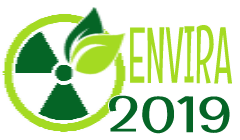Similar to Jimmy, who recently secured 15 million euros in funding, there are multiple startups such as Naarea and Renaissance Fusion that are developing disruptive technologies in the field of nuclear power. However, currently these startups have limited financial resources and will need to overcome significant industrial hurdles.
In the last decade, startups have brought about a significant revitalization to the space industry, which has traditionally been dominated by state or parastatal entities. Is the nuclear sector poised for a similar transformation?
Despite EDF currently facing one of the most significant crises in its history, there are several emerging French nuclear startups that are beginning to make their presence known. Their primary goal is not to supplant the leading energy company but to leverage novel technologies to offer solutions to the climate crisis.
Jimmy is a prime example of such a startup. Founded in 2021, this budding company has recently secured 15 million euros in funding from notable investors such as Eren Industries, Noria, Otium Capital, and Polytechnique Ventures.
Jimmy’s focus is on creating thermal generators using a nuclear microreactor of the HTR type. According to Antoine Guyot, the founder of Jimmy, this type of reactor can achieve exceedingly high temperatures (500-600 degrees) while also being incredibly safe.
Build thermal generators
Jimmy’s thermal generators will have a height of 15 meters and occupy 8 meters of ground space. The startup plans to primarily deploy them in industries such as food, chemicals, and paper that require substantial heat sources. These companies rely heavily on fossil fuels and are seeking to secure their energy supply while reducing their carbon footprint. Antoine Guyot is enthusiastic about the potential impact, saying:
It could lead to an industrial revolution.
Jean-Luc Alexandre would agree with this statement. He has extensive experience working with major industrial groups such as Suez and Alstom. He co-founded Naarea, a startup focused on developing an ultra-compact 4th generation mini-reactor. This reactor will leverage the untapped potential of used radioactive materials and thorium, which is a byproduct of mining that is typically discarded. Jean-Luc Alexandre explains:
Our plan is to release a digital twin next summer.
This tool should allow the young shoot to carry out tests and accelerate the development of its first prototype.
On the other hand, Renaissance Fusion is placing its bets on nuclear fusion, a sophisticated technology that differs from nuclear fission by combining two light atoms into a heavier one, generating an enormous amount of energy in the process.
Simon Belka, the project manager at the Grenoble-based startup, explains:
Our goal is to create a nuclear fusion reactor that can generate carbon-free, abundant, and non-intermittent energy using almost limitless resources.
Risk philosophy
The management of CEA, an organization that offers these startups access to its technological platforms and scientific legacy, says:
We are seeing these new companies challenging the very foundations of the sector.
Patience will be essential for these French nuclear startups. Jimmy is targeting a release date in 2026, while Naarea is looking at 2030, and Renaissance Fusion hopes to be operational within a decade. However, these companies will require significant financial resources to realize their ambitions. The management of CEA notes:
Unlike digital startups, competition is less intense due to the high barriers to entry.
Jean-Luc Alexandre suggests that securing funding for nuclear startups requires finding long-term investors, such as family offices. His own startup has raised “a few tens of millions of euros” at this stage. He adds:
As we continue to de-risk the technology, we can attract other types of investors, such as impact funds.
Convince the ASN
The young companies will need to demonstrate their commitment to safety and convince the nuclear safety authority (ASN). Jimmy reports that they have completed the initial phase of evaluation, with more to come in the coming years.
Jimmy, Naarea, and Renaissance Fusion are optimistic about the growing demand for electricity.
Jean-Luc Alexandre says:
Electricity demand is expected to quadruple over the next 30 years.
Antoine Guyot adds:
The current crisis has highlighted our industry’s lack of energy independence.
These companies have either applied or plan to apply for the “Innovative Nuclear Reactors” project call under the France 2030 program. If their application is accepted, they may receive additional financial support to accelerate the industrialization of their technologies.
